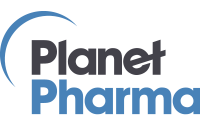Note: This is Recruiter Kim Zinner’s personal story about her opportunity to participate in a clinical trial. We hope the insight is beneficial to anyone considering a similar situation, especially during the Covid crisis.

As a National Senior Recruiter with Planet Pharma, I have been recruiting clinical research professionals for pharmaceutical and biotech clients for nearly 20 years. Throughout my career, I have gained valuable insight into the importance of clinical research, but due to an unfortunate case of Covid-19, I gained first-hand knowledge. Participating in the Regeneron Covid-19 clinical trial was a valuable learning opportunity, especially considering that clinical trials are the backbone of progress in the pharmaceutical industry.
Why You Might Want to Participate in a Clinical Trial
Many people who I’ve talked to don’t realize they can participate in and benefit from clinical trials. I did, and I believe it significantly reduced my Covid-19 symptoms and duration. But the decision to participate can be intimidating, especially if you’re not familiar with the experience.
Based on my experience in the REGEN-COV clinical trial, here’s what you can expect and why you might want to consider a clinical trial if you’re faced with Covid-19, another illness, or a health condition.
Locating a Clinical Trial
I was fortunate enough to find my trial easily. After I tested positive for Covid, I saw an ad for the trial on social media. The research site was 25 minutes from my home, and I called the site to find out if I qualified.
There are plenty of other ways to find out about trials. ClinicalTrials.gov is a good source that you can use, and a traditional internet search works, too. If you’ve recently been diagnosed with a condition, you can Google current clinical trials for that condition. Or, let your doctor know that you’re interested in learning about trial opportunities. Companies are required to go through a rigorous process before starting clinical trials, most of it centered around transparency. Because of that, these opportunities are highly publicized and easy to find online.
Qualifying
You’ll also need to qualify for the trial. Trials have different requirements and those requirements can vary from phase to phase. The primary Regeneron trial was for people who had risk factors like being elderly or asthmatic. I wouldn’t have qualified for the primary trial, but anyone who had Covid-19 could qualify for the expansion trial. A screening process will help you to determine if you qualify.
Deciding to Enroll
You’ll need to make sure that you’re comfortable with the trial, its requirements, and any risks. All this information is explained to you ahead of time. You’ll receive an informed consent form, which outlines the study, the expectations for you as a participant, potential side effects and risks, and your privacy rights.
The clinical trial’s phase can also help you decide whether you want to enroll. During Phase 1, the trial’s focus is on finding the maximum dosage of the treatment with the least side effects. That can be riskier. As you move to Phases 2 3, the medication or vaccine has been tested more, and there’s less risk.
The Regeneron COVID-19 outpatient trial was in Phase 3 by the time I joined it and had already received FDA approval for emergency use authorization. Knowing that the trial had already gone through Phase 1 and Phase 2, I was confident that joining the trial was the right choice for me.
Payment
A silver lining here – most clinical trials provide compensation to participants for their time. I was paid $250 per visit for eight visits over a three month period. That pay can help to cover travel expenses and it’s a perk in addition to potentially receiving a treatment that you couldn’t otherwise access.
The Real Deal or Placebo?
In any clinical trial, you stand a chance of either getting the actual treatment or of receiving a placebo. The Regeneron trial was completely randomized. For every 11 doses only two were a placebo dose. With those odds in mind, I knew there was a pretty good chance that I’d get the treatment, so I was basically getting free access to a treatment that the former President had been given.
Will I Feel Sick?
If you’re seeking out a Covid-19 trial, I can tell you that I quickly felt better after receiving my dose. While my symptoms weren’t severe, I was feeling pretty miserable the day I went in for the first trial visit. I was tired, lethargic, had a splitting headache, and my senses of smell and taste were awful. I received my dose on a Thursday, and by Friday I was about 80% better. By the weekend, I felt normal again.
Different trials may result in different side effects, depending on the trial’s phase and the treatment or vaccine. If you’re seeking a trial for another illness, I would suggest that you ask the clinicians what types of side effects you might expect.
Should I Participate in a Clinical Trial?
The decision of whether or not to participate in a clinical trial is a personal one. You could gain access to a treatment that’s helpful for your medical condition—and some trials offer paid compensation, which is a nice benefit. You’ll also have the satisfaction of knowing you’re helping with the development of a treatment that could help others. Sometimes a trial’s treatment might not work for you, but you’ll still be giving the scientists the valuable data they need to make the next version of that treatment better and stronger.
My experience with the Regeneron clinical trial was a highly positive one. I was able to access a treatment that I wouldn’t have otherwise been able to receive and I found it rewarding to know that I was helping others. Not only have I contributed to a treatment that could help millions of other people, but I’ve also gained insight into what the experience of being a trial participant is like. This insight is valuable to me as an individual, but it’s also something that gives me a deeper understanding of the work that I’m supporting as a recruiter.
Photo credit: Canva and Kim Zinner
by Kim Zinner, National Senior Recruiter, Planet Pharma
How to Create an Effective Pharmaceutical Resume
Your resume is often the first impression you make on a prospective employer in the pharmaceutical industry, so it’s essential to ensure it effectively showcases your skills, experience, and qualifications. Here are some tips for creating an effective pharmaceutical resume that stands out from the competition: Tailor Your Resume to the Job: Customize your resume…
Planet Pharma EU’s October MVP: Mona Azhari
We’re highlighting some of the amazing people who make up our Planet Pharma. Today, let’s get to know Mona Azhari with our Planet Pharma EU team. Name: Mona Azhari Job Title: Recruitment Team Lead How does it feel to be recognised by your colleagues and what was your secret to success this month?…
Planet Pharma EU’s September MVP: Alastair Aitken
We’re highlighting some of the amazing people who make up our Planet Pharma. Today, let’s get to know Alastair Aitken with our Planet Pharma EU team. Name: Alastair Aitken Job Title: Principal Recruiter How does it feel to be recognised by your colleagues and what was your secret to success this month? Feels…



